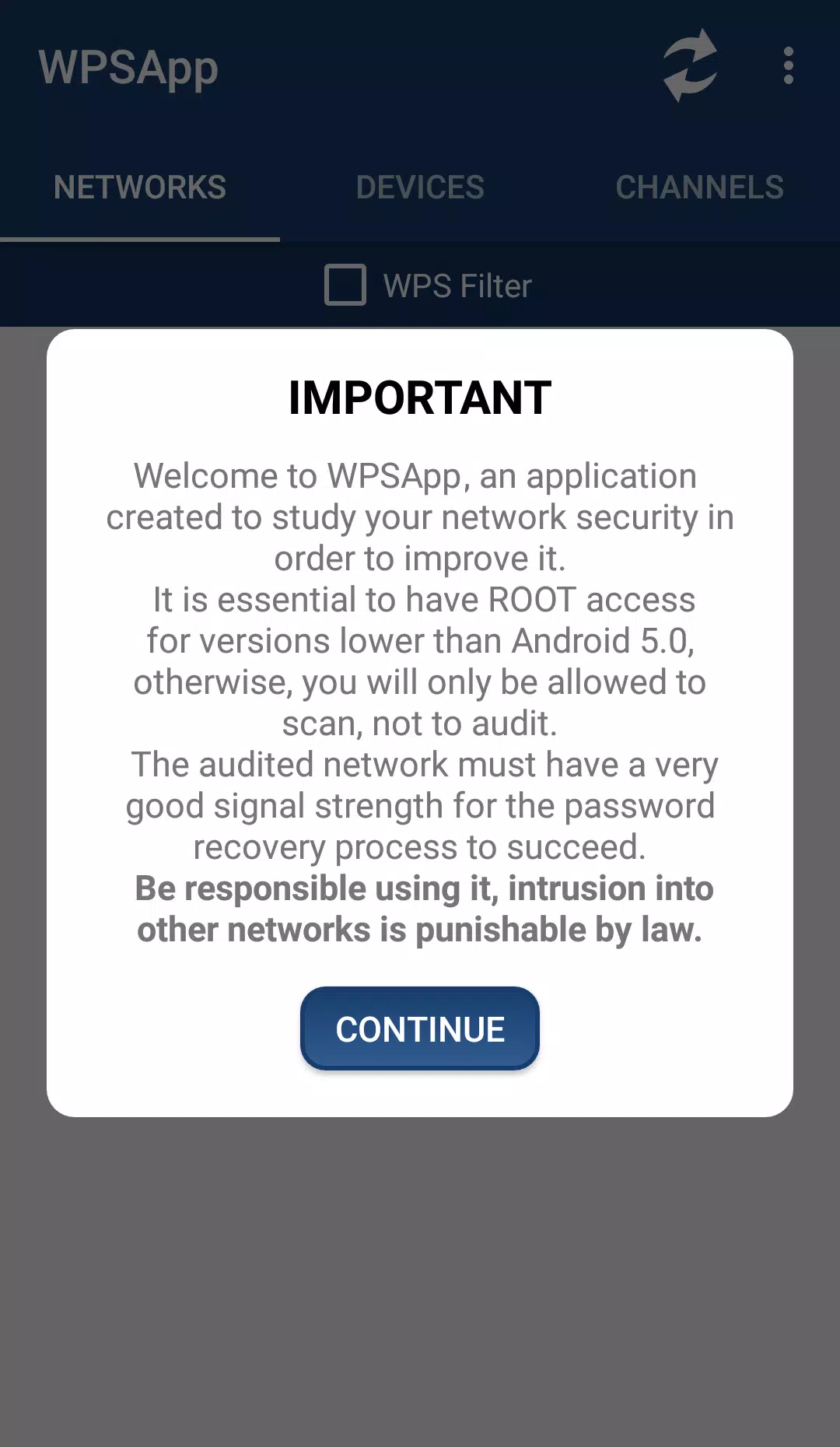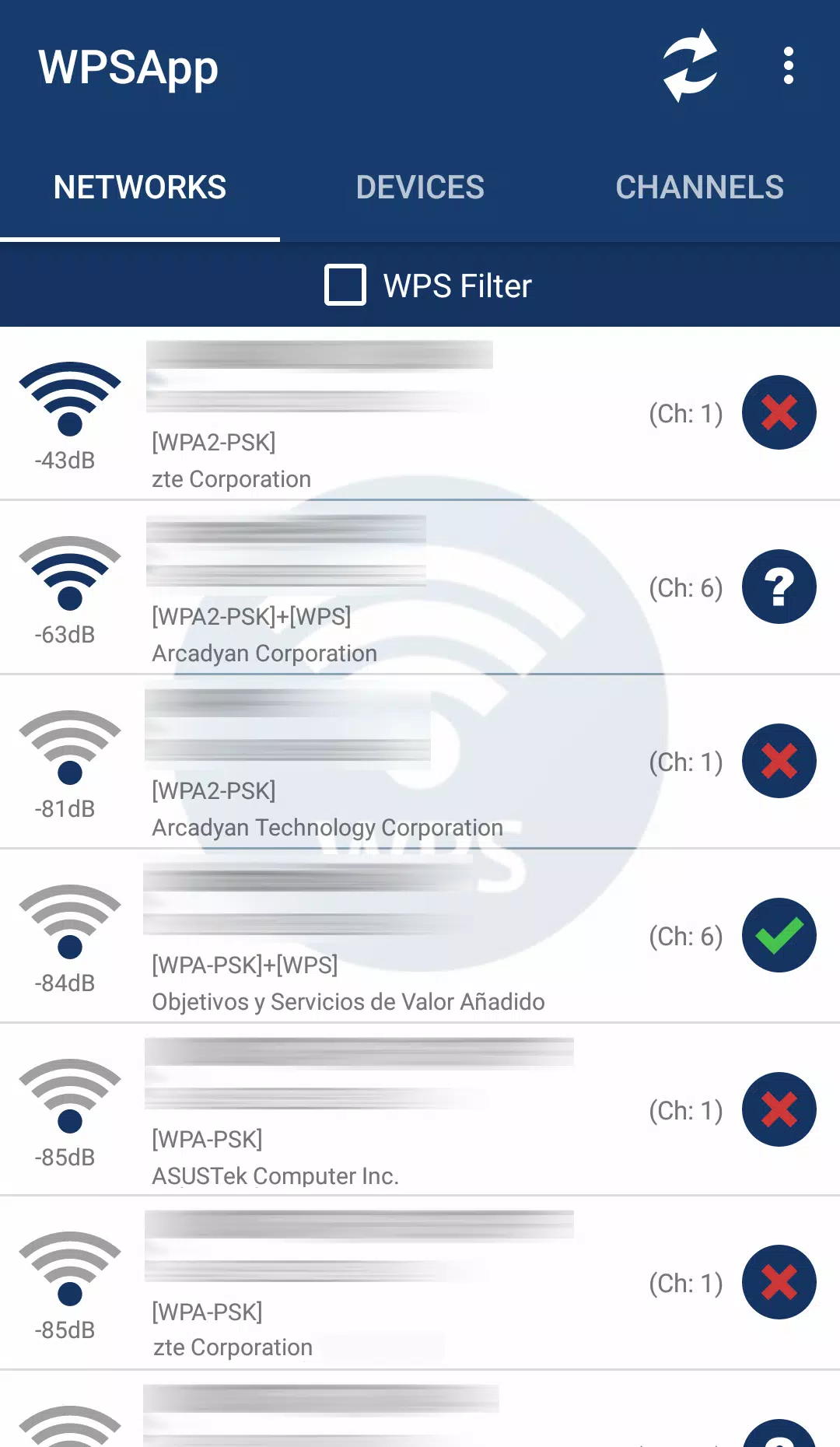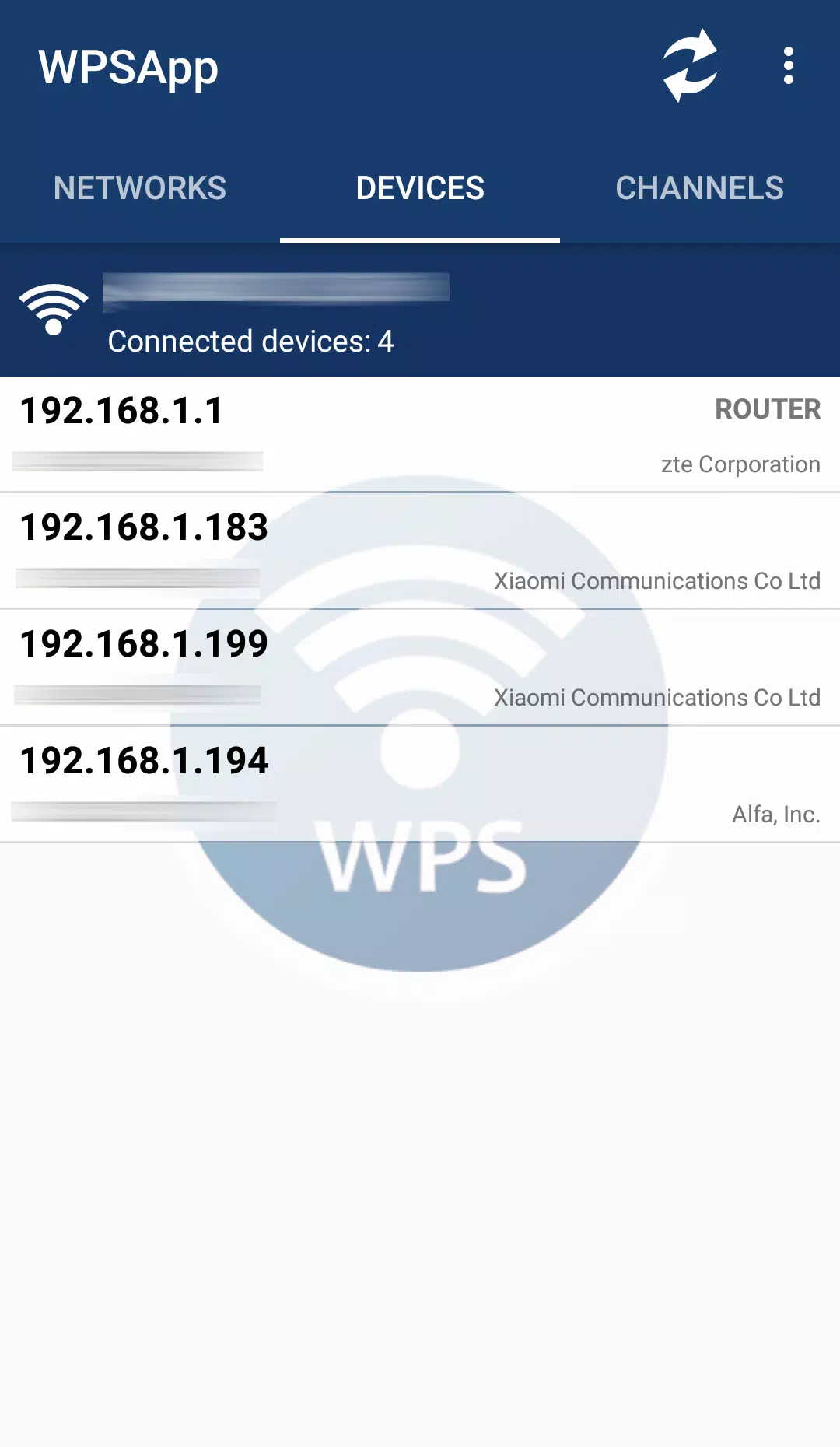Ensuring the security of your WiFi network is paramount in today's digital age, especially when it comes to the WPS protocol. WPSApp is a tool designed to scrutinize the security of your network by leveraging the WPS protocol, which enables WiFi connections through an 8-digit pin. This pin is often preset in routers, and unfortunately, for many models from various manufacturers, these pins are either widely known or can be calculated.
WPSApp utilizes these known pins to attempt connections and assess the vulnerability of your network. It employs multiple algorithms for pin generation and includes a range of default pins. Additionally, it can calculate default keys for certain routers, display WiFi passwords stored on your device, scan connected devices, and evaluate the quality of WiFi channels.
Using WPSApp is straightforward. When you scan for nearby networks, you'll notice networks marked with a red cross; these are considered "secure" as they have disabled the WPS protocol and their default passwords are unknown. Networks with a question mark have the WPS protocol enabled, but their pins are unknown. In such cases, WPSApp allows you to test commonly used pins. Networks with a green tick are likely vulnerable; they have the WPS protocol enabled and a known connection pin. Alternatively, these networks might have WPS disabled but a known password, which also results in a green tick and allows connection using the key.
To access certain features like viewing passwords, connecting on Android 9/10, and other advanced functions, you must be a Root user.
It's important to note that not all networks are vulnerable, and a network appearing as such in WPSApp does not guarantee 100% vulnerability. Many companies have updated their router firmware to address these issues.
It is strongly advised to test your own network for vulnerabilities. If you find your network to be at risk, take immediate action: disable WPS and change your password to a strong, personalized one.
Please be aware that misuse of this tool, such as intruding on foreign networks, is illegal and punishable by law.
From Android 6 (Marshmallow) onwards, granting location permissions is necessary, a requirement introduced by Google. For more details, visit: Android 6.0 Changes.
Some Samsung models encrypt passwords, displaying them as a long series of hexadecimal digits. You may need to look online or contact the developer for decryption information.
Unfortunately, pin connection does not function on LG models running Android 7 (Nougat) due to issues with LG's software.
Before rating the application, please familiarize yourself with its functionality.
For any suggestions, issues, or feedback, please email [email protected]. Thank you.
Acknowledgments to: Zhao Chunsheng, Stefan Viehböck, Justin Oberdorf, Kcdtv, Patcher, Coeman76, Craig, Wifi-Libre, Lampiweb, David Jenne, Alessandro Arias, Sinan Soytürk, Ehab HoOoba, drygdryg, Daniel Mota de Aguiar Rodrigues.
Tags : Tools






















